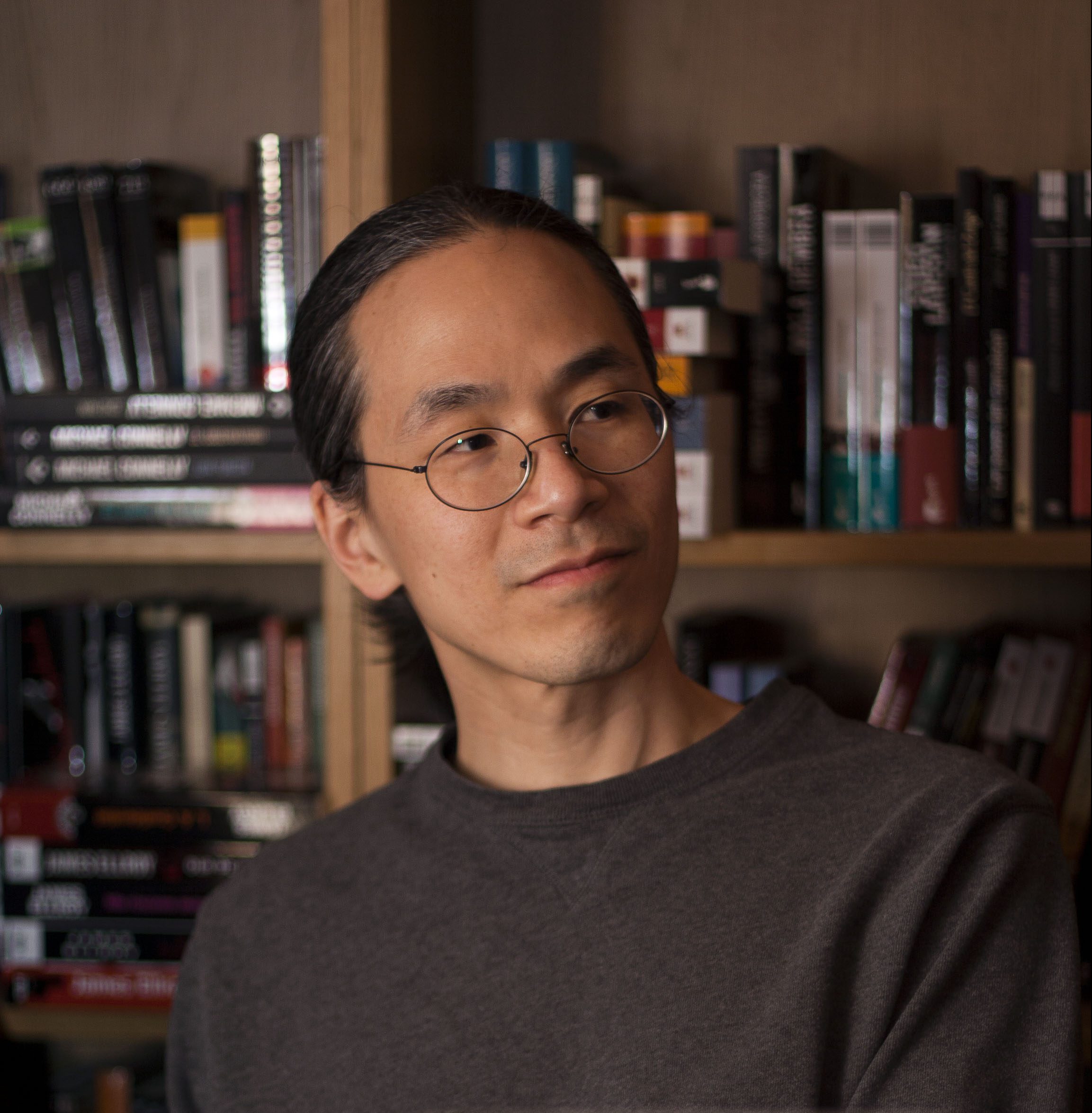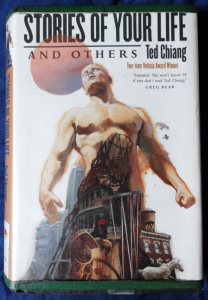
January 30, 2020, by UoN School of English
Review: Ted Chiang’s Short Story Collections
Reading short stories is a satisfying use of leisure time for when you’re busy or just have a short attention span. It’s also vital to getting through the Creative Writing module. For me, there is no greater master of short stories than Chinese-American sci-fi author Ted Chiang.
One of the most prestigious, least prolific authors of our age (since 1990, he’s written a grand total of fifteen short stories and zero novels), his two short story collections Stories of Your Life and Others and Exhalation: Stories were released seventeen years apart. There is good reason for this: reading his work, you can feel the meticulous research behind every word. Each story explores different scientific fields, from mathematics to linguistics to pre-scientific cosmology. The way he plots his stories as little puzzle box narratives that only click into place at the end is a truly impressive feat and relies on a precise control of the reader’s focus.

Photo credit: Mark Wilson / (CC 2.0)
For such well-researched and vigorously plotted stories, it’s surprising how human the characters are, never sacrificing story for science. A personal favourite is ‘Exhalation’, which manages to make what could slip into a dry technical explanation of GCSE Physics particle theory, one of my most enlightening and cathartic reads. The stories never outstay their welcome; just long enough to develop a tantalisingly real world—particularly true of ‘Tower of Babylon’, which depicts the intricate human mechanisms of building an infinitely tall tower to reach the heavens, where pre-scientific misconceptions about the world are actually fact. If this all sounds too mathematical for English students, take a look at ‘Story of your Life’. Recently adapted into the Denis Villeneuve film Arrival, it realistically documents the painstaking experience of translating the graphological and phonological alien language of the Heptapods. It’s a fascinating read for anyone studying a linguistics module.
If you’re already a fan of Chiang’s work, I’d also recommend Sum by David Eagleman, a collection of flash-fiction thought experiments about the afterlife with puzzle-box narratives similar to Chiang’s but on a micro scale. Likewise, Cixin Liu’s The Wandering Earth collection is a great read, whose titular story, about humanity artificially halting the Earth’s rotation, was also recently adapted to film. Where Chiang is more concerned with the poetically circular structure of his prose, Liu spends longer within each world, following human characters around as we discover the story.
Happy reading!
Angus Forshaw is an English student at the University of Nottingham.
Featured photo credit: Arturo Villarubia / (CC BY-SA 2.0)
Previous Post
A Guide to Fresher’s FearNext Post
A Student’s Search for PresenceNo comments yet, fill out a comment to be the first

Leave a Reply